Nov 12, 2007 Comments Off on Mood Shoes
Mood Shoes
A prototype by Markku Ruotsalainen, Jenna Sutela and David SzauderMood Shoes are sonic wearables for super walking. They enable a ubiquitous (mobile) way to experience the environment in a manner of choice. Wearing Mood Shoes, one can decide whether to walk on thin ice, on the beach, in a puddle, in snow, on the moon or on the foil of a big drum regardless of the nature of their actual location/environment. The sense of ground varies from grains of sand to splashes of water expressed through sound samples in headphones. The first step‘ {$STAMP BS2}’ {$PBASIC 2.5}pLED PIN 12pLED PIN 15pSens PIN 0′ ====[ Variable]=============================wBuf VAR WORD’====[Initialization]============================DEBUG CLS, “start”, CR’====[Main]================================xMain:DOPULSIN pSens, 1, wBufDEBUG DEC wBuf, CRIF wBuf > 200 THENPULSOUT pLED, 1PULSOUT pLED, 100ELSEPULSOUT pLED, 0PULSOUT pLED, 1000ENDIFLOOPEND
The first step‘ {$STAMP BS2}’ {$PBASIC 2.5}pLED PIN 12pLED PIN 15pSens PIN 0′ ====[ Variable]=============================wBuf VAR WORD’====[Initialization]============================DEBUG CLS, “start”, CR’====[Main]================================xMain:DOPULSIN pSens, 1, wBufDEBUG DEC wBuf, CRIF wBuf > 200 THENPULSOUT pLED, 1PULSOUT pLED, 100ELSEPULSOUT pLED, 0PULSOUT pLED, 1000ENDIFLOOPEND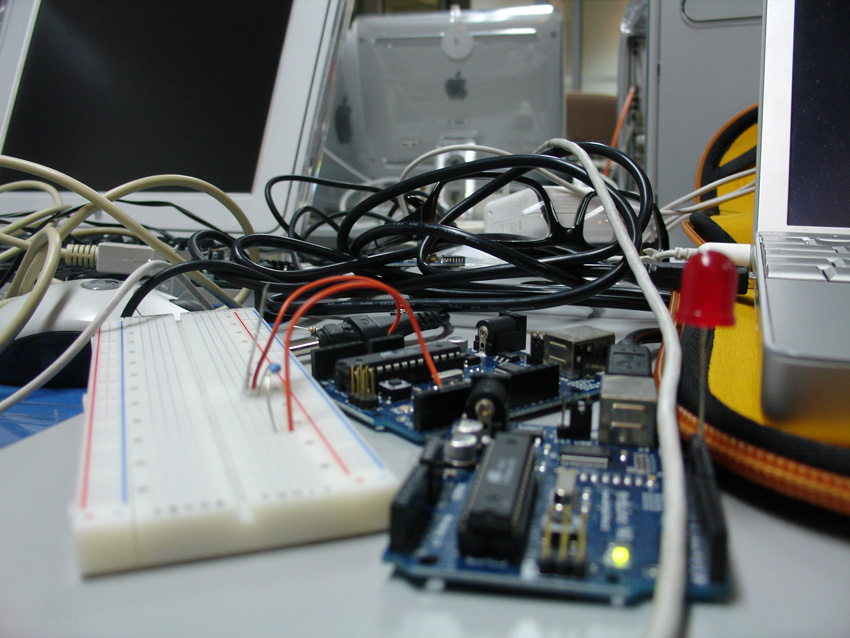 Switching from BASIC Stamp to Arduino
Switching from BASIC Stamp to Arduino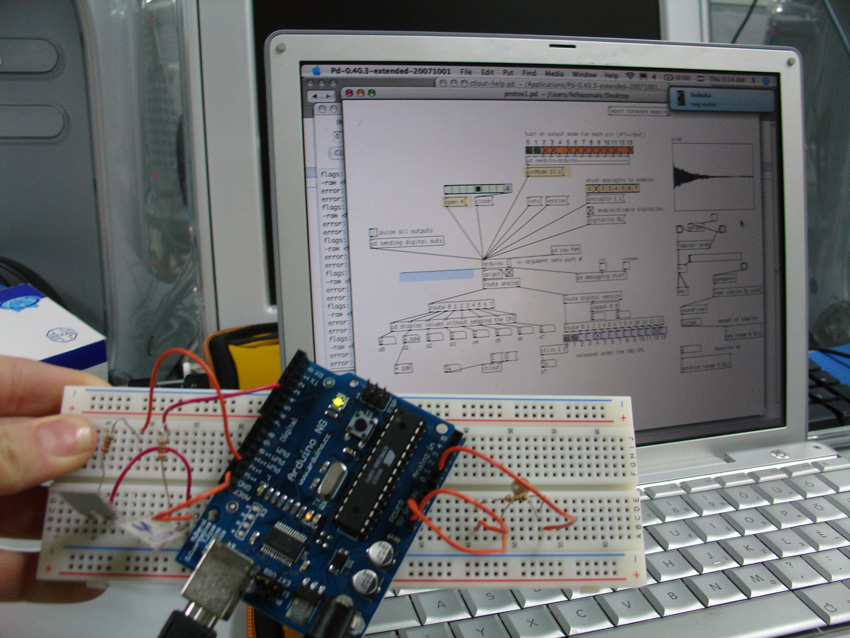 Arduino and PureData
Arduino and PureData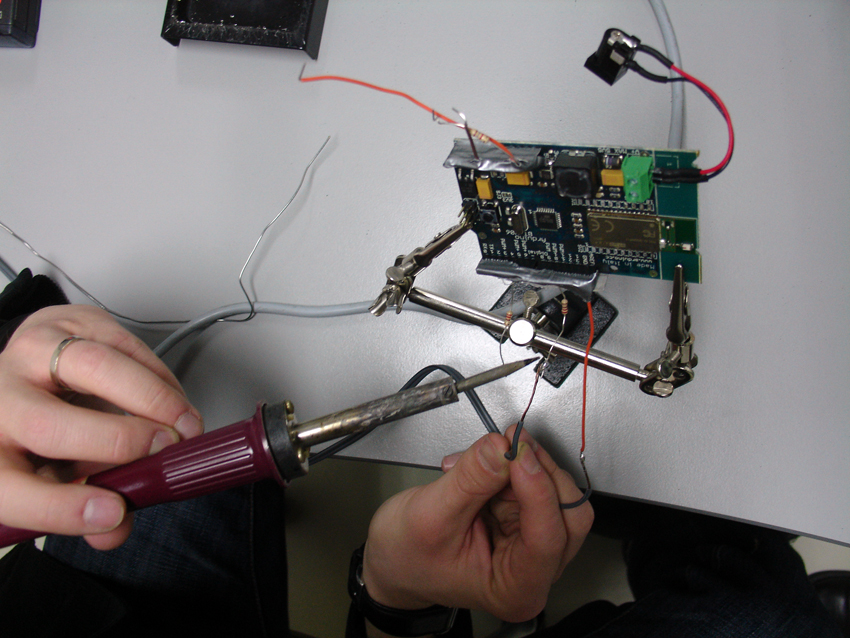 Assembling
Assembling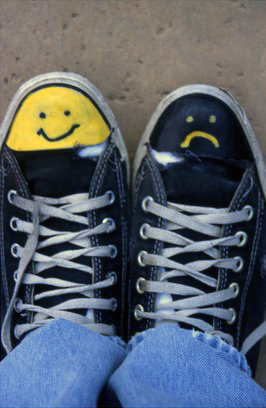 An early adaptor
An early adaptor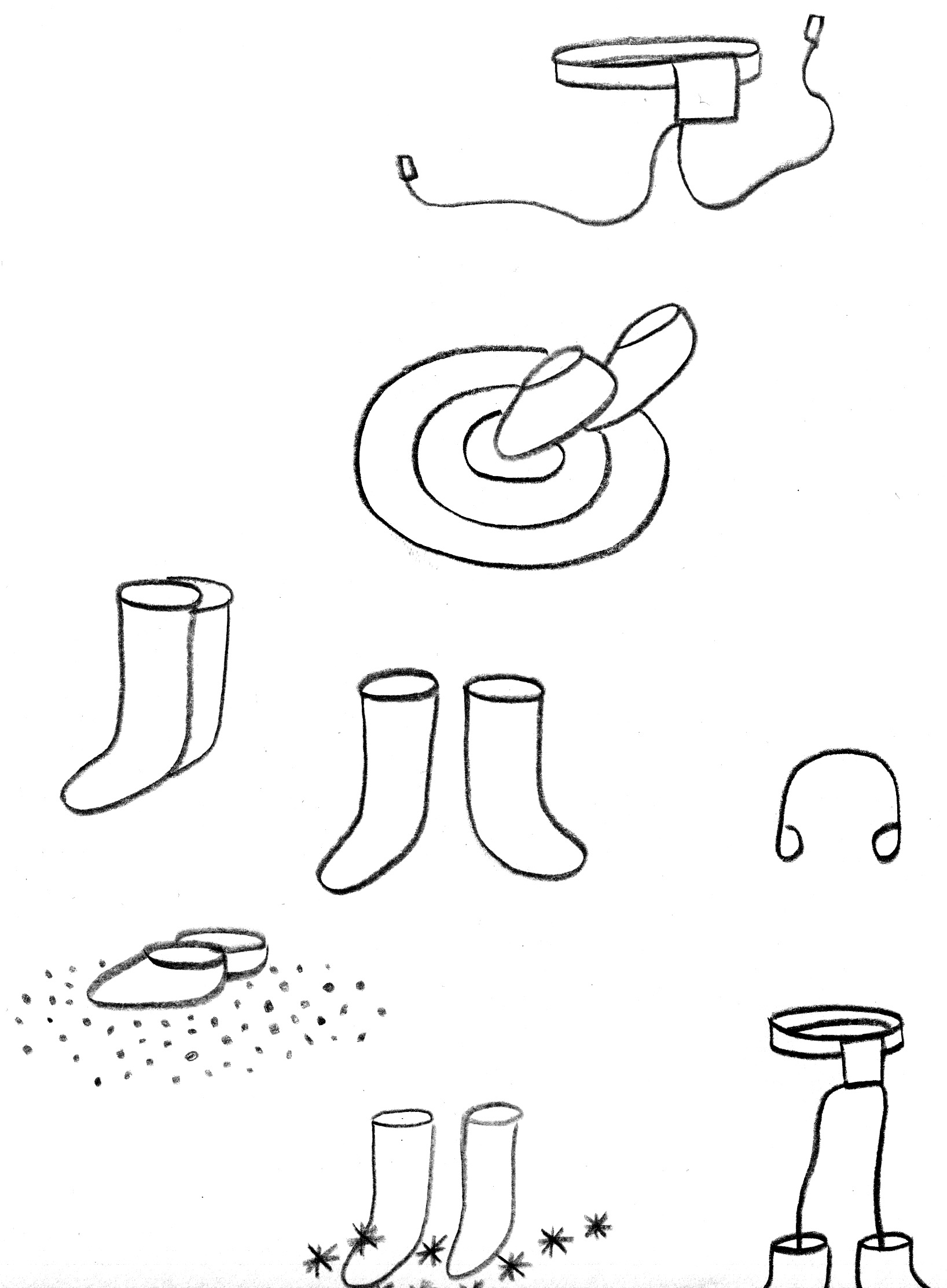 SketchingProject outlineBuildingEquipment- Arduino board- 2 touch sensors- 1 light sensor- Bluetooth- Pure Data- Sound samples- Shoes, belt- Headphones- FM receiver and transmitter (see http://anarchy.k2.tku.ac.jp/)ProgrammingTasks:1) Realizing a (Bluetooth) connection between Arduino board and PureData- MIDI from BS to PD2) Making the touch and light sensors work with Arduino and shoes3) Connecting the FM receiver and transmitter and the headphones to the systemInterfacingTasks:1) Collecting sound samples2) Choosing atmosphere samples to work with the light sensor3) Placing the touch sensors in shoes and attaching the Arduino board to a belt
SketchingProject outlineBuildingEquipment- Arduino board- 2 touch sensors- 1 light sensor- Bluetooth- Pure Data- Sound samples- Shoes, belt- Headphones- FM receiver and transmitter (see http://anarchy.k2.tku.ac.jp/)ProgrammingTasks:1) Realizing a (Bluetooth) connection between Arduino board and PureData- MIDI from BS to PD2) Making the touch and light sensors work with Arduino and shoes3) Connecting the FM receiver and transmitter and the headphones to the systemInterfacingTasks:1) Collecting sound samples2) Choosing atmosphere samples to work with the light sensor3) Placing the touch sensors in shoes and attaching the Arduino board to a belt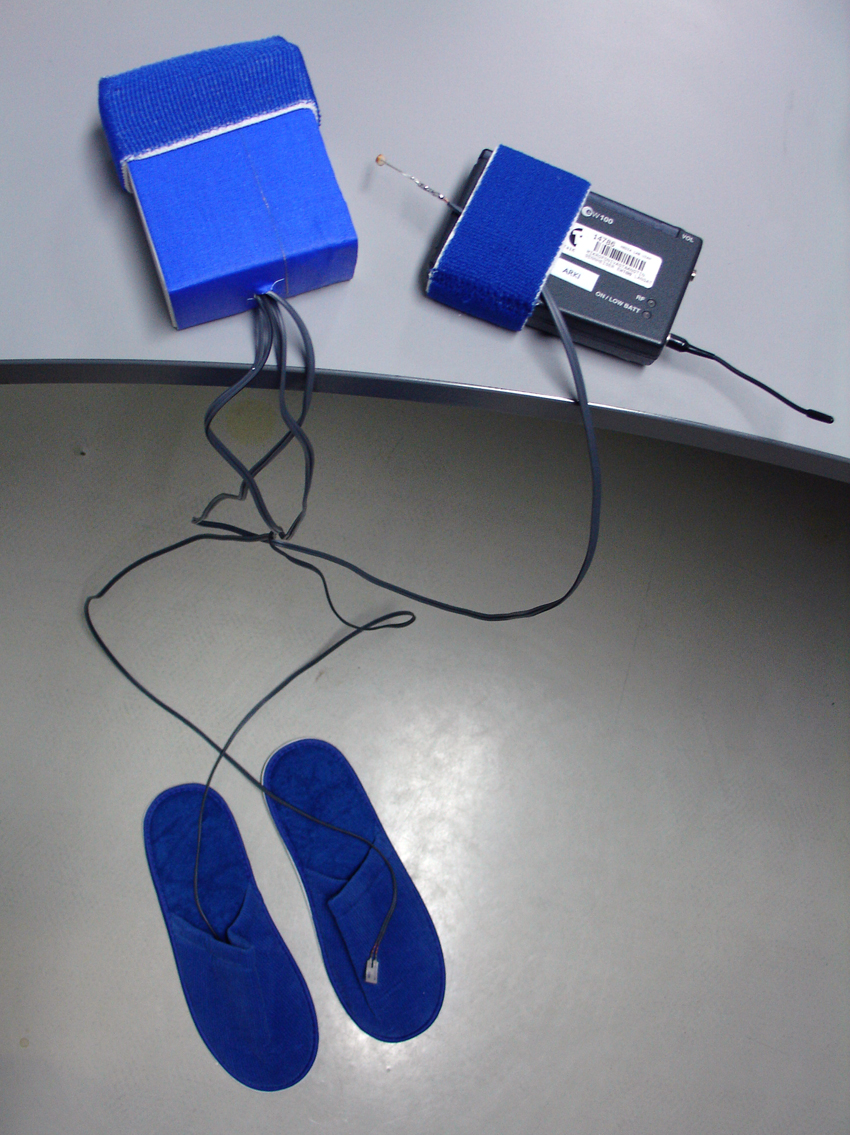 Try me!
Try me!
